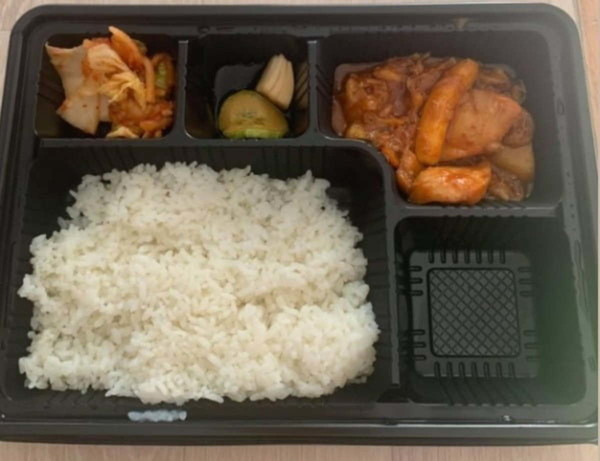On April 8, a single Facebook post sent Korean society into uproar. The post contained a photo of the meal for the quarantined soldiers who returned from leave, and the low standard provoked outrage at how the military treats its own men. The informant, a soldier from the 51st Infantry Division, said quarantined soldiers are treated like criminals in prison. More posts followed, with informants from various other divisions all revealing similar poor meal quality.

Regardless of political stance, politicians and the media strongly criticized the Ministry of National Defense (MND). This uncommon united consensus was possible because both parties were satisfying their political agenda in protesting the issue. To the right-wing, the low meal quality in the military implies a weakening of national security. To the left, the same issue is related to the human rights of the soldiers. After such criticisms, the Minister of National Defense Suh Wook promised to prevent the recurrence of such cases and ensure quality meals to all those serving in the military.
After the minister's broadcasted apology, things changed — but not in a good way. Further reports revealed that soldiers were facing other violations of human rights. There was news of how the military seized the soldiers’ phones to prevent information spreading to the outside, and unit commanders were reported to be threatening their soldiers from further informing the media with the argument that it violates military law. But perhaps most importantly, the quality of the meals did not even change. Later posts on social media revealed meals of similar quality to the original. Changes were applied on the soldiers, not their meals.
As the criticism continued, the minister apologized again, and the public yet again expected changes. But the reaction of the MND has brought more cause for criticism. When members of the National Assembly questioned whether the first informant was punished, the minister avoided giving a clear answer. Meanwhile, the manager of the Facebook page that posted the original report revealed that officials from the MND visited his house without prior notice and demanded to know who the informant was. Such actions suggest that the MND is focused more on punishing the informant than improving the situation.
How the military treats soldiers is humiliating and unimaginable. The Republic of Korea has the 10th largest GDP in the world, and the budget allocated for national defense went up to 52.9 trillion KRW in 2021. But this clearly is not going toward soldiers’ welfare. The soldiers were conscripted and are serving under the duty to protect their nation and civilians. Yet, the quality of the meals is less than that of those in prison. People who are protecting society are treated worse than those who are harming it.
During my time of service, there would be times when my comrades and I had to watch lectures by defectors from North Korea. They would make a remark about how North Korean soldiers receive poor meals with only rice and kimchi, and emphasize that we were blessed to be serving in South Korea. But judging from the posts, it seems that the two Koreas are not that different in how they treat their soldiers. In May 2020, one of the members in my platoon was quarantined after he showed signs of coughing, along with all the other soldiers who shared the room with him. They secretly contacted me asking if I could bring them ramyeon and frozen foods. I thought they were just missing such instant meals, but it turned out they were receiving only half the meal portions they were supposed to get. The soldiers of higher rank showed little concern about this situation, and the quarantined soldiers did not dare complain.
The military force is the fundamental institution that provides national security and defense. The former and currently serving soldiers are the real force protecting the nation. The Military Manpower Administration, the recruitment department of the military, has stated their vision “to make Korea a nation that sees military service as a proud act of service”. But how can the service inspire pride when even food is not served adequately? It is time that the MND stops making excuses and actually takes action to provide basic welfare.

